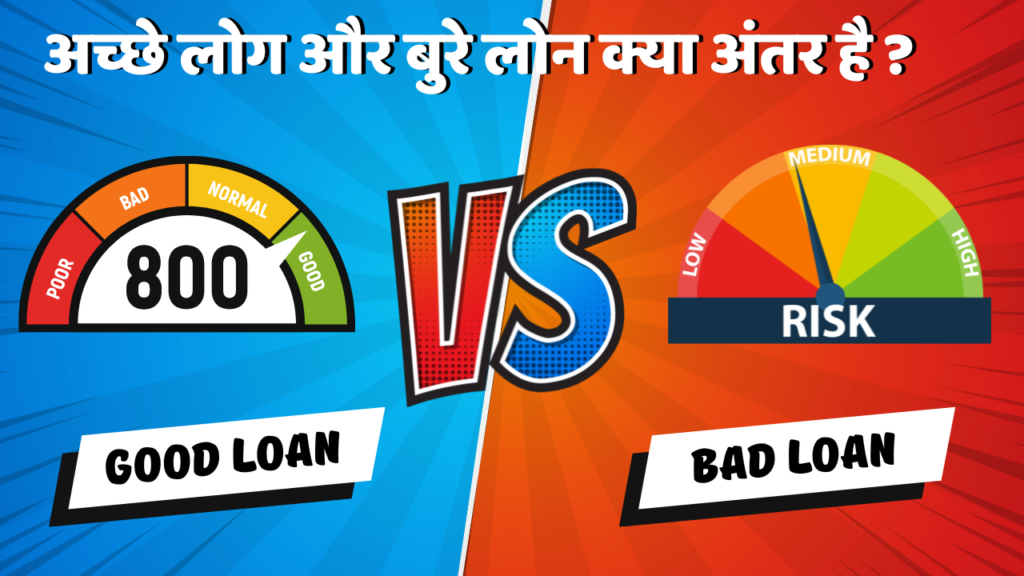Summary
Settling a loan lets you pay less than you owe, relieving debt but damaging your credit record. After settlement, your credit report will reflect the account as “settled” rather than “closed,” which causes lenders to exercise caution. To avail another loan, you typically need to wait for 6-12 months and restore your credit profile. The significant measures include checking your credit report, regular bill payments, use of a secured credit card, and fixed income. Secured and NBFC loans are less difficult to get compared to unsecured ones. To maximise your chances, provide a sound loan recommendation and a justification for your earlier settlement in a letter. Patience and financial discipline restore confidence for lenders and increase your eligibility for a loan after a time frame has passed.
Introduction
Satisfying a loan will bring relief if repayments are proving difficult, but settling your loan will have implications for your borrowing capacity in your future. Individuals ask how much time will elapse after settling one before you can acquire another loan. This will vary depending on credit history, earnings, and the type of loan for which you’re applying. A settlement flag appearing on your credit report can lead lenders to approach you cautiously, but this does not preclude you from borrowing again completely. With a few precautions, such as boosting your credit record, maintaining stable income, and practising good financial discipline, you can restore your profile and enhance your chances for a fresh loan approval. This article clarifies how settling a loan will impact your credit and how you can get approved for another loan again.
How Long After Loan Settlement Can You Apply for a New Loan?
Especially if you have been having trouble paying back a loan, settling one can feel like a financial rebirth. Once a loan is paid off, though, a recurring question is: how long should one wait to apply for another?
Although there is no common waiting period, the chronology relies on several elements like your credit score, income consistency, lender risk policies, and degree of credit profile rebuilding since the settlement.
Understanding the Aftermath of Loan Settlement
When you pay back a loan, your lender has agreed to take less than the whole owing. This damages your credit report even when it helps you pay debts faster.
What “Settled” Means on Your Credit Report
Your credit report shows a settled loan instead of a closed loan or one paid in full. This raises concerns since it tells potential lenders you did not pay back the whole amount.
Impact on Credit Score
Your credit score is greatly changed by loan settlement. Your past repayment history and the amount of the loan paid will determine if the score falls drastically. This decline causes your eligibility for new loans to be delayed.
Typical Waiting Period After Loan Settlement
The kind of lender and your recovery plan will affect the waiting period following settlement, for which you can qualify for a new loan.
Minimum Timeframe to Consider
Usually, lenders demand at least some credit rebuilding activities for several months. Usually advised is to wait at least six months to one year before seeking for a fresh loan. This allows your credit profile time to heal and exhibit regular positive activity.
Severity of Past Defaults
Should your past defaults be recent or serious, the waiting period may be longer. Conversely, should your default be minor and you have worked to rebuild, you might qualify sooner.
Factors That Affect How Soon You Can Get a New Loan
Many factors affect the length of time a loan approval takes following a settlement. These cover your credit as well as your financial behaviour following settlement.
Credit Score Recovery
The speed of improvement in your credit score is among the most crucial elements.
Monitor and Improve Your Score
Check your credit report from all the main bureaus first. Verify that no more mistakes exist and that the settlement is accurately recorded. Then concentrate on raising your score by keeping limited credit use, timely payments, and secured credit card use.
Track Progress Monthly
Certain credit score systems let you view your score for free every month. See when your score falls into a range, most lenders will allow you to use these instruments.
Consistent Income and Employment History
Lenders view your credit score only as one factor. Some credit issues might be mitigated by a consistent income and work experience.
Submit Income Proof and Job Continuity
If you have been regularly working after settlement, provide bank statements or pay stubs to show steady income. Business owners and freelancers should send profit statements and tax filings.
Type of Loan You Are Applying For
The kind of loan you apply for determines the waiting time as well. Approval criteria for some loans are more liberal than for others.
Personal Loan vs Secured Loan
Following settlement, unsecured personal loans have tougher acceptance criteria. Though your credit history is still under recovery, secured loans backed by fixed deposits, real estate, or gold can be more easily obtained.
NBFCs vs Traditional Banks
Often more flexible than conventional banks are non-banking financial enterprises. Particularly if your previous financial activity is steady, they could provide loans sooner following settlement.
Build a Positive Repayment History
Lenders want to see that you have changed your financial behaviour.
Take a Small Credit Product
One might start building trust with a secured credit card or a small consumer durable loan paid back on schedule. These reduce the waiting for a bigger loan and add a good payback history to your report.
Avoid Delays or New Defaults
Any unpaid bills following your settlement can throw off the recovery schedule. To get near eligibility, keep constant with all your financial responsibilities.
Carefully Prepare Your Loan Application
Present a neat and full application when you are ready to maximise your prospects.
Provide a Loan Explanation Letter if Needed
Certain lenders let you provide a letter outlining your past resolution. Take advantage of this chance to explain the default’s causes and stress what has changed since then, including financial preparation or career promotions.
Apply With Lenders Who Offer Soft Checks
Use lenders that let you investigate eligibility via mild credit searches. Especially while you’re still healing, this helps to prevent forceful pulls that can momentarily drop your score.
Tips to Boost Loan Approval Chances After a Loan Settlement
While it provides much-needed financial comfort, settling a loan compromises your capacity to borrow going forward. Many borrowers ask how they may increase loan eligibility following settlement and win back lender confidence. The good news is that consistent financial discipline and a suitable plan will make it achievable.
After paying off a past debt, this guide provides doable advice to help you improve your loan eligibility.
Understand the Impact of Loan Settlement on Your Eligibility
You should know how a settlement may impact your future borrowing capacity before you start working on enhancing your profile.
What Happens After Settlement
Your credit report notes “settled” when a lender takes a smaller payment to finish your debt. This points to a bad mark since it shows that the whole sum was not paid back.
Credit Score Drop
A settlement could seriously lower your credit score. Should the settlement follow missing payments or a charge-off, the reduction may be more severe. A lower score limits your access to credit cards, personal loans, and even house or auto loans.
Start by Repairing Your Credit Score
Improving your credit score is one of the most effective ways to enhance your loan eligibility.
Check Your Credit Report
Review your credit report from several bureaus for mistakes or outdated information. Verify that no overdue debts display as active and that the settlement is reported faithfully.
Pay Existing Dues on Time
Every on-time payment now helps build a new, positive history. Ensure that all your current bills, credit card payments, or EMIs are paid on or before the due date.
Use a Secured Credit Card
Applying for a secured credit card backed by a fixed deposit can help you start rebuilding credit. Use it for small purchases and pay the balance in full each month to show responsible behaviour.
Demonstrate Stable Income and Financial Discipline
After settlement, lenders want proof that your financial situation has improved. Demonstrating income stability and discipline can increase your chances of loan approval.
Maintain a Stable Job or Business
continuous business income or a continuous employment guarantees lenders of your ability to pay back. To bolster your income claims, send in paperwork including tax returns, bank statements, or pay stubs.
Reduce Your Debt-to-Income Ratio
Try to cut your continuous financial commitments. Reducing credit card balances or paying off minor loans will help you look financially better to lenders and lower your debt-to—income ratio.
Choose Lenders Who Understand Credit Recovery
Not every lender views a former settlement the same way. Some are more ready to deal with debtors rebuilding their profiles.
Explore NBFCs and Fintech Platforms
Online fintech lenders and non-banking financial enterprises could have more flexible approval standards than established banks. They take fresh changes in financial conduct into account and often go beyond just credit scores.
Consider Loans Against Security
Should your unsecured loan application be declined, try for a secured loan supported by insurance policies, fixed deposits, or gold, collateral. These could be easier to obtain, even with a settlement on file and carry less risk for lenders.
Prepare a Strong Loan Application
When applying for a new loan, how you present your profile can make a difference.
Share a Credit Recovery Letter
Some lenders allow you to explain your financial journey. Prepare a short letter stating why you had to settle your previous loan and what steps you’ve taken to recover. Mention job stability, credit repair, and budgeting improvements.
Avoid Multiple Loan Applications
Applying to several lenders at once causes several hard inquiries, which can further lower your score. Select lenders providing soft-check pre-approvals to minimise further credit damage.
Maintain a Long-Term Financial Strategy
Increasing eligibility calls for more than just temporary measures. The key is to be constant over time.
Build an Emergency Fund
A little savings cushion might stop missed payments or potential defaults. This demonstrates to lenders your financial responsibility and unexpected spending planning.
Budget and Track Expenses
Using basic budgeting techniques helps you properly control income and expenditure. Lenders want applicants who control their money.
Stay Clear of New Defaults
A fresh default after settlement may drastically affect your chances of borrowing once more. Make sure you just borrow what you can pay back and promptly fulfil all obligations.
Do Banks Approve Loans After Settlement? What You Need to Know
Loan settlement might provide financial assistance for individuals having trouble paying back loans. Many borrowers, however, have the same urgent issue once they settle: Can you obtain a bank loan following loan closure? The quick response is yes, but the choice of a bank depends on various important elements.
This page clarifies how banks see settled loans and how you could raise your chances of acceptance.
How Banks View Loan Settlements
When a borrower negotiates with the lender to pay a smaller amount when they are unable to pay back the whole outstanding loan, a loan settlement results. The lender marks the account as “settled” and agrees to write off a bit of the loan.
Settlement on Your Credit Report
Credit bureaus change their records upon debt settlement. Rather than “closed” or “paid in full,” the report will show the “settled” status, which banks find objectionable. It indicates that the borrower fell short of the whole contractual commitment.
Why Banks Consider It to be a Red Flag?
Usually, banks mostly depend on your credit history and habit of payback. A settlement points to some danger. It indicates the borrower might have the same problems in the future, as she was unable to pay as agreed. Most banks start to exercise caution while reviewing applications from those with a record of settlement.
Can You Get a Bank Loan After Loan Settlement?
Though it is not guaranteed, approval is possible. Before deciding, banks will weigh many elements.
Time Since Settlement
If your loan was paid off lately, banks could turn down fresh loan applications completely. Your odds, nevertheless, rise if enough time has gone by and your financial conduct has changed. Rebuilding credibility usually calls for at least six to twelve months of waiting.
Type of Loan You Apply For
Getting secured loans, such as those against fixed deposits or gold, may be simpler than getting unsecured personal loans. Secured loans allow the bank some default protection, which increases their flexibility even after settlement.
Overall Credit Profile
Not just one account; banks will also review your whole credit record. If you paid back other loans or credit cards on schedule following settlement, it will help to offset the negative effects.
How to Improve Your Chances of Getting a Bank Loan
Banks want comfort knowing you have grown from past mistakes and are in a better financial situation right now. These tips will help you to enhance your profile before you submit.
Rebuild Your Credit Score
First things banks will look at are your credit score. Your score could have suffered after a settlement. Before you approach any bank, you have to work on rebuilding it.
Use a Secured Credit Card
Available against set deposits are secured credit cards. By using these sensibly, you can gradually raise your credit score and rebuild a good payment record.
Make Timely Payments
Make sure you pay your credit card bills, other debts, and existing EMIs on or before their due dates. Your efforts at rebuilding may suffer even with one missing payment.
Show Proof of Financial Stability
Banks want your faith in your capacity to pay back a fresh loan. Showing consistent income and financial control is vital.
Provide Income Documents
Get your income tax returns, bank statements, and pay stubs ready. A consistent income helps to balance some of the hazards related to a past settlement.
Maintain a Low Debt-to-Income Ratio
Banks consider the extent of your income already locked under debt. Maintaining modest commitments about your income will increase your chances of acceptance.
Choose the Right Bank and Loan Type
Not every bank uses the same lending standards. Some could be more adaptable than others.
Consider Smaller Banks or NBFCs First
Should big banks turn down your application, you could want to look at smaller banks or NBFCs (Non-Banking Financial Companies) known to provide loans to consumers with lesser credit ratings or past settlements.
Start with a Secured Loan
Requesting a secured loan will help you rebuild confidence. Successful repayments over time can also provide unsecured credit opportunities.
Explain Your Settlement in Advance
If your settlement came from a real hardship like job loss or medical emergency, be clear about it.
Write a Loan Explanation Letter
Some banks let you describe the history of your financial difficulties and how things have turned around in letters. Sometimes your honesty and transparency will help you.
Conclusion
Lastly, although loan settlement aids in financial issues, it will reflect on your credit record and impact your ability to secure another loan. The secret to borrowing once is waiting patiently and delaying the recovery credit rating after some time has lapsed. Pay your bills as scheduled, use secured credit cards, and possess a solid regular income source, and your credit will be healthy. Varying creditors have various policies, therefore, a consideration such as NBFCs or secured loans will widen your avenues. Remember that maintaining dependability and regular fiscal habits will assist creditors in building confidence again. With meticulous planning and commitment, you can successfully secure a new loan after settlement and move toward a good fiscal position.
FAQ’s
Ans: Rebuilding your credit and demonstrating good financial responsibility will help you wait six to twelve months at least before you reapply.
Ans: Because it is a sign that you did not pay the full amount you agreed to, loan settlement does lower your credit score.
Ans: Yes, but you will be accepted subject to your credit recovery, steady income, and the type of loan you want.
Ans: Pay bills on time, apply for secured credit cards, have a regular fixed income, and consider borrowing from secured loans or flexible lenders like NBFCs.













